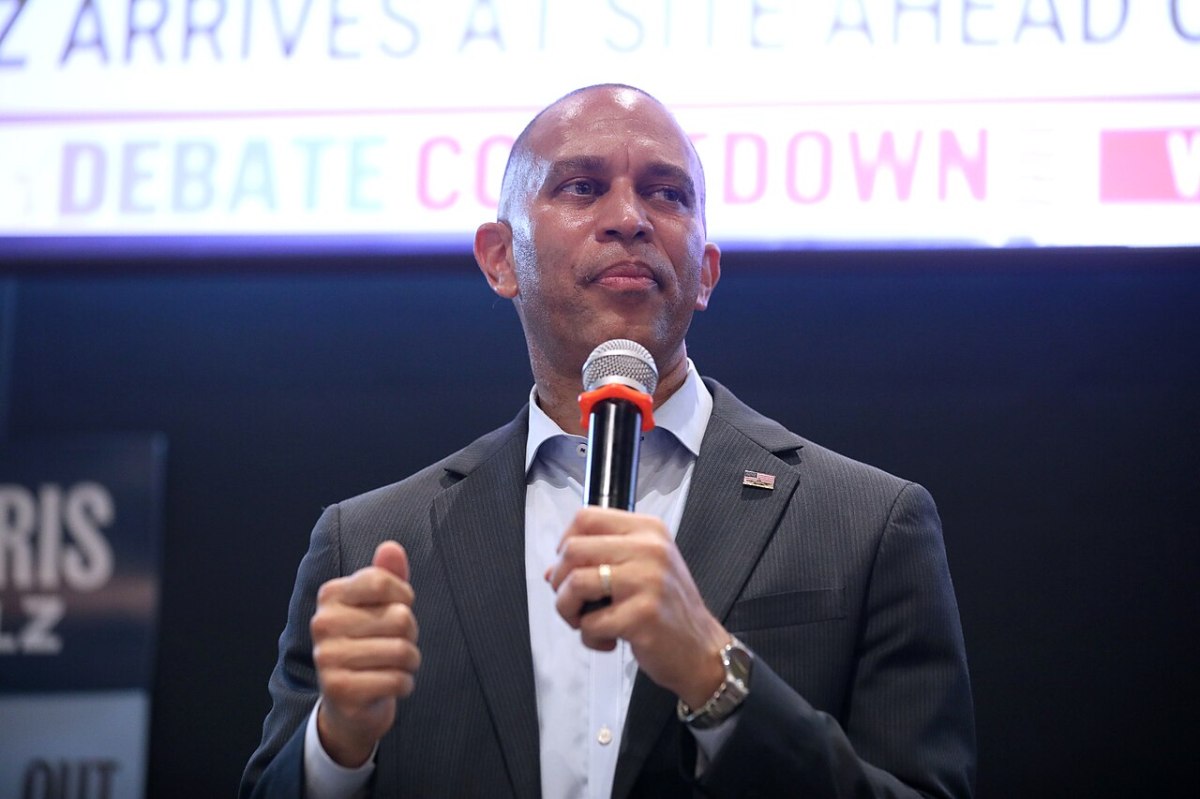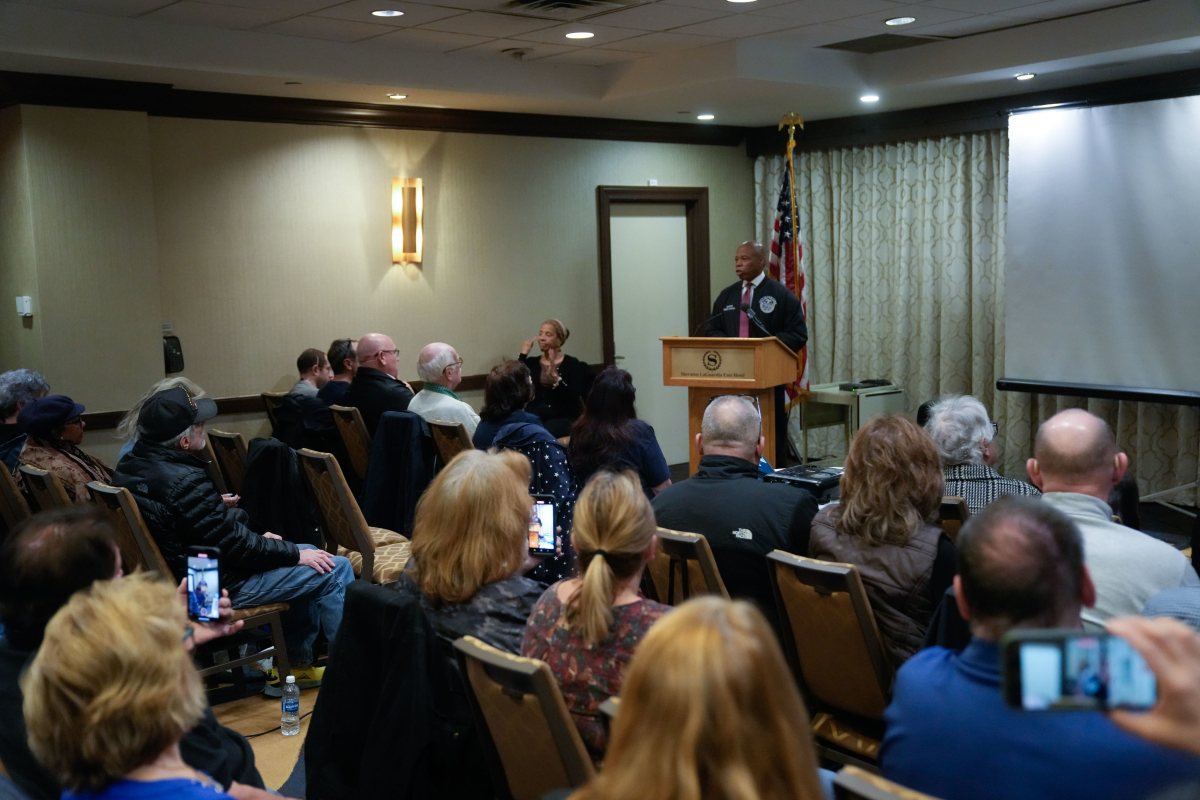Just a couple of days after getting officially sworn-in as a member of Congress, admitted resume fabricator George Santos (R-Queens/Long Island) was hit with a Federal Election Commission (FEC) complaint alleging that his campaign finance practices during his Congressional campaign last year violated federal law.
The complaint was brought by the Campaign Legal Center — a Washington D.C. based campaign finance law focused nonprofit. It alleges that Santos violated the Federal Election Campaign Act (FECA) by hiding the actual sources of his campaign war chest, misrepresenting how he spent his campaign funds and using those dollars for personal expenses during both his 2020 and 2022 bids for Congress.
A seemingly endless stream of media reports over the past three weeks have revealed Santos seemingly misrepresented or completely made up most of his educational, professional and personal backstory. His lies include that he graduated from Baruch College, attended New York University, worked for financial firms like Goldman Sachs and is Jewish.
Santos’ shadowy campaign finance practices have also been the subject of intense scrutiny in recent weeks. Considering Santos’ many other fabrications, the complainants said, those dealings should prompt thorough investigation from the FEC.
“Particularly in light of Santos’s mountain of lies about his life and qualifications for office, the Commission should thoroughly investigate what appear to be equally brazen lies about how his campaign raised and spent money,” the complaint read.
The FEC declined to comment on the complaint when contacted by amNewYork Metro.
“The Commission is unable to comment on potential enforcement matters,” an FEC spokesperson said.
Saurav Ghosh, the Campaign Legal Center’s federal campaign finance reform director, told amNewYork Metro that among the three allegations his group’s complaint raises, the most notable is the source of $705,000 Santos loaned his campaign.
“Now, anyone looking at his financial disclosures, from his first attempts to enter Congress in 2020, versus the same financial disclosures he filed in the 2022 cycle, would see right away that he had had almost an overnight change in his personal fortunes,” Ghosh said.
That’s because, Ghosh said, Santos reported only making a $55,000-a-year salary, in his 2020 financial disclosures, but then reported to somehow have started earning millions of dollars over 2021 and 2022 from his newly established financial firm the Devolder Organization LLC.
The source of those millions, the complainants allege, are “vague” and “uncorroborated.”
‘That whole story, to us, doesn’t hold water,” Ghosh said. “And he’s had shifting explanations for, not only what Devolder does, but how he was able to so quickly turn it into a thriving lucrative business, which, by the way, also happened during the exact same period that he was, again running for Congress — this time successfully.”
Under House financial disclosure rules, Ghosh said, Santos would’ve had to disclose any clients who paid him over $5,000 for whom he personally provided services — as Devolder’s principle. But he didn’t do that, Ghosh said.
“So, either he’s failed to disclose that, or basically, he didn’t have any clients like that,” Ghosh said. “So, either way it’s a problem. But I think it just goes to support further the case that this money didn’t come from clients, the way he at one point claimed it did.”
The Campaign Legal Center also pointed to 40 fishy Santos campaign disbursements between $199 and $200, 37 of which were exactly $199.99 — a penny below the required $200 threshold to provide proof of purchase — for various goods and services that would normally be worth very different amounts. For instance, they highlighted Santos’ campaign reporting having spent $199.99 at the W Hotel South Beach of Miami, Florida, but they said the least expensive room for a single adult staying one night there in the middle of October is $700.
However, Ghosh said, the complaint likely won’t result in the FEC taking direct punitive action against Santos. What it does do, he said, is compel the FEC to open an enforcement matter, meaning its general counsel’s office has to draft a report with recommendations about whether to look into the matter further.
“Unfortunately, most of the time, that’s where the enforcement process ends at the FEC, with a report in a lot of cases saying that ‘we should investigate this further’ and the commission simply deadlocking and declining to do that,” Ghosh said.
“Our cautiously optimistic hope is that the absurdity of this case, and all of the reporting that Santos’ campaign has put in front of the agency, combined with his clear pattern of lies and fabrications, will be enough to convince the FEC that it needs to investigate further and hopefully enforce law and impose some penalties.”



































